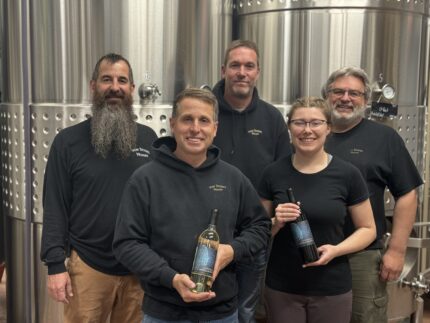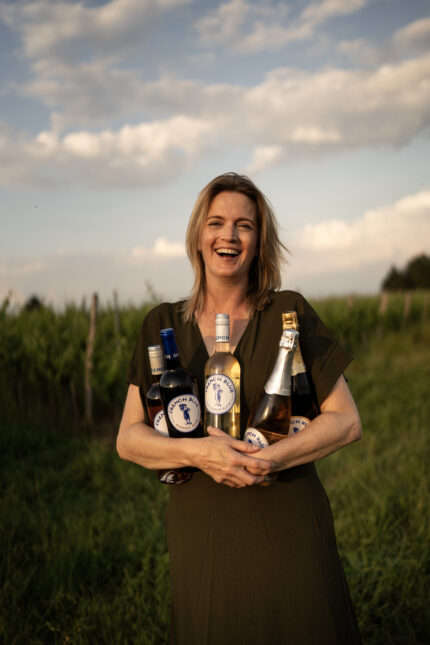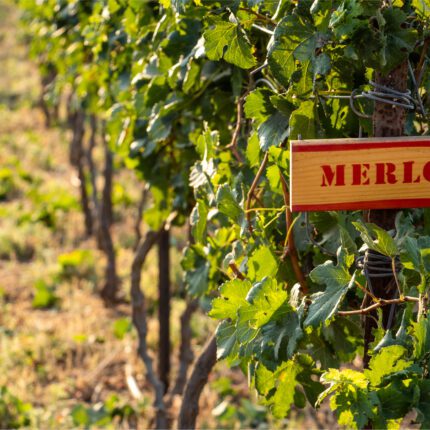
For more than 200 years, Merlot has been a foundational grape in the wine world – from Bordeaux to California – used to make some of the finest wines. The Merlot grape, which translates to blackbird in French, became the most planted grape in Bordeaux and known for its soft, elegant texture and approachable style.
Then 2004 hit and literally turned the industry on its head with dropping demands (like a $400 million dollar hit) and changing consumer sentiment. There was the movie that everyone associates, Sideways, where the main character explosively announces, “If anyone orders merlot, I’m leaving,” he explodes. “I am not drinking any f—ing merlot.” And, you throw in the issue happening with the varietal, where lower-quality Merlot was being produced in the wrong soils, you had the perfect storm.
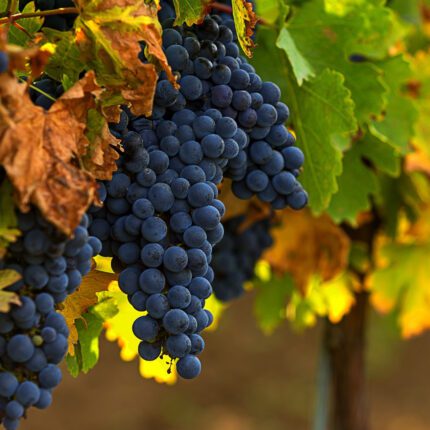
Thankfully this sentiment is changing, and Merlot is returning to its rightful place as a favorite with consumers. For the last six years, hundreds of Merlot producers have been mounting a movement to celebrate Merlot, designating October as International Merlot Month. More than 100 Merlot producers, wine merchants, restaurants and consumers will taste and toast online (using #MerlotMe), at events, in wine stores, restaurants and homes across the world this October in 41 states and 32 countries. I have received about 7 samples so far (and they are still coming and I got 15 samples in 2020), so I will review the wines later and let you know what I look forward to trying:
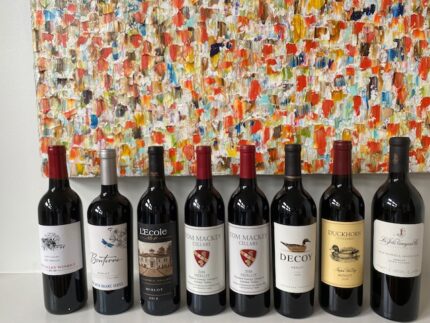
2018 Pope Valley Winery Merlot
Originally founded in 1897 by Ed Haus as Burgundy Winery & Olive Oil Factory, the historic winery was purchased 100 years later by the Eakle family and renamed. Today the winery is run by the second generation of family members — David Eakle, winemaker, and Diana Eakle Hawkins, general manager.
For over 25 years, Bonterra has used organic and Biodynamic® farming practices. Bonterra is dedicated to enhancing vine, wildlife, and soil to make the best wines possible. The wines are made by Winemaker Jeff Cichocki, along with Founding Winemaker Bob Blue,
Founded in a century-old schoolhouse in the historic Frenchtown area, on the edge of Walla Walla. L’Ecole stands for “the school” in French, and the schoolhouse was part of School District #41. Founded in 1983, L’ecole Winery is the third oldest winery in Walla Walla wine country with 31 years of history. The winery uses the unique terroirs of Washington State and farms sustainably. I’ve had the opportunity to visit and write about the winery before and it’s a great experience.
2018 and 2019 Tom Mackey Cellars
Tom Mackey is the former winemaker at St. Francis Winery for 30 years and is now owner of Mackey Cellars. Mackey partnered with zinfandel expert and geologist Clyde Galantine to create the winery along with Graham Parnell. The winery’s goal is to source some of the finest vineyards in Sonoma County and produce very small lots of hand-picked wines.
La Jota Vineyard Co. was founded in 1898 by Frederick Hess, an immigrant from Switzerland, who purchased 327 acres of a Mexican land grant—Rancho La Jota—on Howell Mountain to plant vineyards. He believed the terroir; the remoteness of Howell Mountain and the weather was similar to where some of the best wines in the world were being produced.
Prohibition put an end to production and the winery was revitalized in 1974 where former oilman Bill Smith acquired the “ghost” La Jota Vineyard Co. and planted vines on the vineyard… In 2005, the 28-acre property was acquired by Jess Jackson and his wife Barbara Banke.
2018 Duckhorn Merlot and 2019 Decoy Merlot
Duckhorn Vineyards was founded in 1976 by Dan and Margaret Duckhorn after a life-changing trip to Pomerol where they tried “right bank” Bordeaux wines and knew they wanted to make great wine in Napa. They made decision to focus on the production of Merlot as a stand-alone wine. Decoy, originally a single, second-label wine supporting the Duckhorn Vineyards brand has become its own focused winery. I had the chance to meet with Renee Ary, the winemaker of Duckhorn in 2014 in Dallas. More about our conversation here.
These wineries were all intentional about making Merlot and identifying the climate and soil where it will flourish. Merlot is a grape that needs more respect. If you want to start your own rediscovery of Merlot, here’s a list of events that will show you the way.

